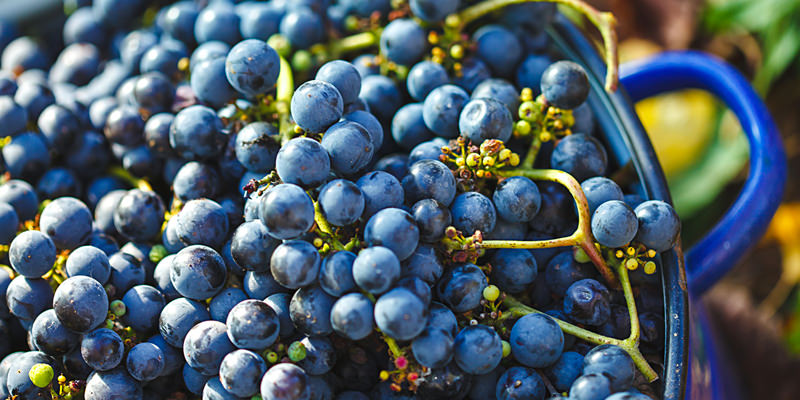
In these naturally-focused times, the idea of organic wine is sexy, and it’s no mystery why. Just the word “biodiversity” has a nice ring to it. But it’s not just a word. Practicing biodiversity in the vineyard means using nature’s own cycles and rhythms to promote growth. It means choosing natural options over synthetic or chemical ones to promote the growth of vines and the production of wine.
Take, for example, fertilizer. Winemakers who are more in tune with the land have been replacing commercial fertilizers like synthetic pesticides with more natural types, like manure. As manure decomposes, it releases nitrogen, which is an essential nutrient for yeast in wine fermentation. Contrast this with some non-organic producers, who pump their vineyards full of nitrogen, which can result in awful, over-performing grapes.
But the organic farming practices go even further. Winemakers practicing biodiversity plant trees and other plants to specifically encourage predatory insects to populate the areas around their vineyards. These predators — like wasps and bees, for example — build nests and pollinate vineyards. They also eat the mites that would otherwise do damage to the acres under vine. Using nature’s own ecosystem, the winemakers protect their vines without introducing any external chemicals.
That’s the thing about organic wine: Organic winemakers try as best they can to not intervene. Instead of buying cultured yeast, they allow the natural yeast in the air to start the fermentation process and they just monitor it, making sure all is going well. They also try not to add any additional sulfites to the winemaking process (sulfites are a preserving agent that naturally occurs in a vineyard). If the winery is certified organic, the winemaker is not allowed to add any additional sulfites.
But sustainability goes beyond the health of crops; it extends to the workers. With organic viticultural practices, the workers in the vineyard are not exposed directly to potentially harmful commercial products, and those commercial products are not draining off the vineyard floor and into waterways, or a neighbor’s property.
There are many other aspects of the organic approach to winemaking, but these are the general ideas. For us as wine lovers, drinking organic wine gives us peace of mind. If you are someone who is concerned about these things and wants as many natural products in your life as possible, then for you, organic wine will be better than non-organic, or what is sometimes called conventional wine.
The downside to all this natural business is that when wines are made this way, attention to detail is essential for the quality to come through. If there is even one slip-up in the biodiversity practices, nature takes over and can overrun your winemaking, leaving you with a lot of work to do to get back to balance. And you have to do it naturally and not give in to the commercial quick fixes. Cleanliness in the winery is key in any winery but especially in an organic one. Natural fermentation often takes longer than with cultured yeasts and the environment has to be just right so that no unwanted bacteria contaminate winemaking vessels, compromising the end result of the wine’s flavor profile.
If a winemaker is good at being careful and concise in the organic or sustainable environment, then the wine will be great and give you that poetry we’re all looking for. If one thing goes wrong and the winemaker is a bit sloppy, then the wonderful notes of smoke and hints of coffee will turn to wafts of band aid and hints of mouse pelt.
But just because a wine is not certified does not mean it is not organic. Winemakers, especially in Europe, have been utilizing organic practices for years, yet do not have the time or the money to get certified, which is expensive and takes at least three years.
Good winemakers know their grapes and know their land. They are in tune with the climate and work hard to balance nature and technology to make great wine. Mother Nature is unrelenting, and of all the alcoholic beverages out there, wine is the most susceptible to her capriciousness. Good winemakers also know this and will usually do everything they can not to mess with nature, but sometimes may have to trick her a bit into thinking she has control.

